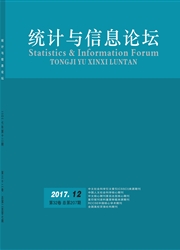

 中文摘要:
中文摘要:
采用考虑非期望产出的超效率SBM—DEA模型,对长江经济带整体及其上中下游1996—2013年能源生态效率进行评价,从三个方面测算省际间能源生态效率收敛性。结果显示:长江经济带整体能源生态效率平均水平为0.936,下游能源生态效率最高,上游次之,中游最低;能源生态效率区域差异性显著,长江经济带整体和中下游区域同时存在σ收敛、绝对β收敛和条件β收敛,上游只存在条件β收敛。在去产能背景下,应该更加注重长江经济带能源生态效率一体化发展进程,各省市结合自身能源生态效率发展状况特点推进能源效率提升,缩小区域间能源生态效率差异,促进过剩产能消化。
 英文摘要:
英文摘要:
This paper uses the super efficiency SBM-DEA model with the consideration of unexpected outputs to evaluate the energy eco-efficiency of Yangtze River Economic Belt as a whole and that of its upstream,midstream and downstream from 1996 to 2013and to calculate the convergence of the inter provincial energy eco-efficiency from three aspects.The results show that the average level of energy eco-efficiency of Yangtze River Economic Belt is 0.936,and that the energy eco-efficiency of its downstream is the highest,followed by that of its upstream and midstream.The regional differences of energy eco-efficiency is significant.The Yangtze River Economic Belt and its midstream and downstream haveσ-convergence,absoluteβ-convergence and conditionalβ-convergence,and its upstream only has conditionalβ-convergence.In the context of the capacity reduction,we should pay more attention to the integration development process of the energy eco-efficiency of Yangtze River Economic Belt.The provinces and cities should promote their energy efficiency in accordance with their own characteristics of the development of energy eco-efficiency,narrow the regional differences of energy eco-efficiency and contribute to the digestion of excess capacity.
 同期刊论文项目
同期刊论文项目
 同项目期刊论文
同项目期刊论文
 期刊信息
期刊信息
